Publications
Articles, publications, books, tools and multimedia features from the U.S. Institute of Peace provide the latest news, analysis, research findings, practitioner guides and reports, all related to the conflict zones and issues that are at the center of the Institute’s work to prevent and reduce violent conflict.
Truth Commission: South Korea 2005
Truth Commission: South Korea Truth Commission: Truth and Reconciliation Commission Duration: December 2005-December 2010 (five years) Charter: Law No. 7542 (May 31, 2005) Commissioners: 14 male, 1 female Report: Public report

The Islamists Are Coming (Book)
The Islamists Are Coming is the first book to survey the rise of Islamist groups in the wake of the Arab Spring. In this book, Robin Wright offers an overview and 10 experts identify Islamists in Algeria, Egypt (two), Jordan, Lebanon, Libya, Morocco, the Palestinian territories, Syria, and Tunisia. Each chapter is designed to help both a general audience and specialists.
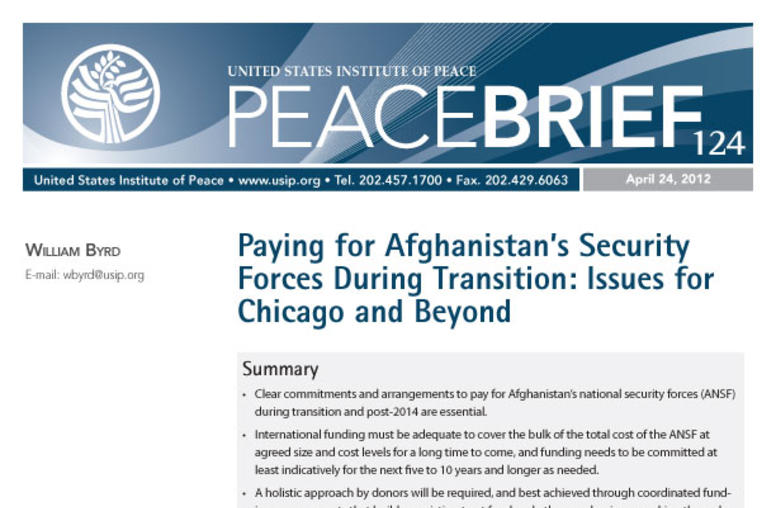
Paying for Afghanistan's Security Forces During Transition: Issues for Chicago and Beyond
This report reflects the authors' research interests and several publications on security sector reform from a financial and development perspective. It is intended to lay out key issues and trade-offs in this area, and brings in concepts and tools of public financial management which are applicable to the security sector.
Tara Sonenshine Sworn In as Undersecretary of State
Former USIP Executive Vice President Tara Sonenshine was formally sworn in as undersecretary of state for public diplomacy and public affairs by Secretary of State Hillary Clinton on April 24. In her remarks, Sonenshine spoke of her career in journalism and government, and paid tribute to her mentors, including USIP President Richard Solomon.
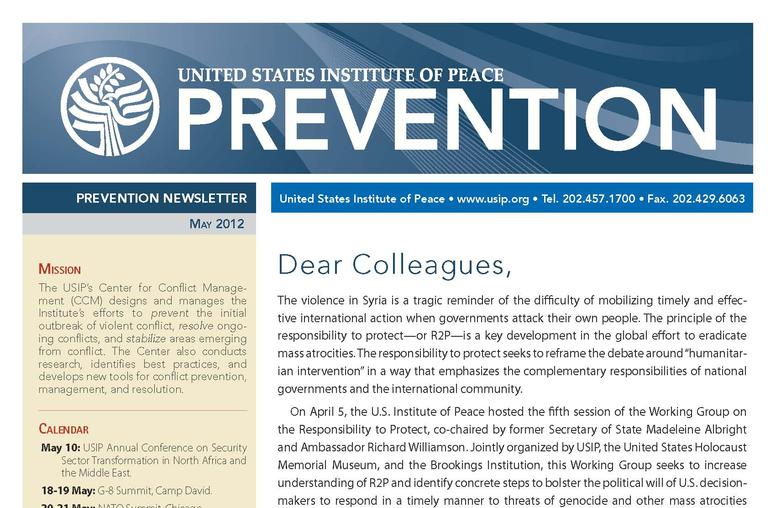
USIP Prevention Newsletter - May 2012
The May 2012 Prevention Newsletter features a spotlight on the North Korean Missile Launch: On April 13, North Korea defied the international community and conducted a failed long-range ballistic missile test.
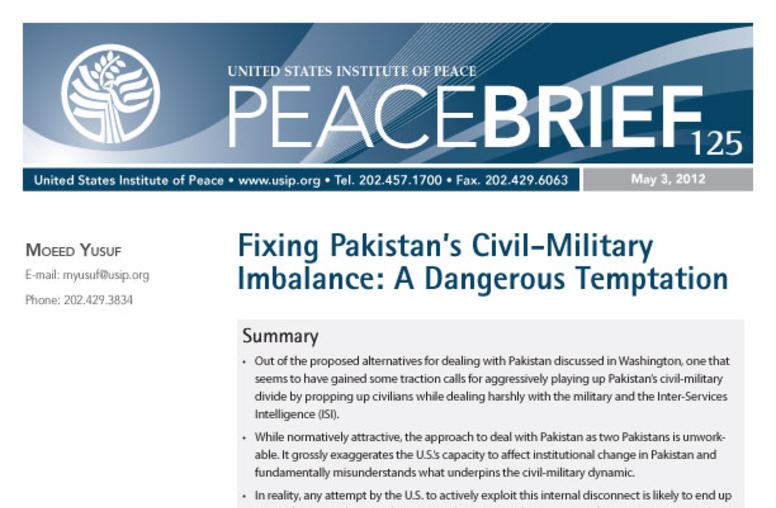
Fixing Pakistan’s Civil-Military Imbalance: A Dangerous Temptation
This report focuses on one of the central debates on Pakistan in Washington: how to deal with this troubled and troubling ally in the months and years ahead. While views are divided, the rising frustrations with Pakistan have led many to lose patience and seek a stern response from the U.S. The author, USIP’s South Asia adviser, addresses a misconception regarding Pakistan’s civil-military relationship and the potential for the U.S. to make this the basis of engagement with Pakistan.
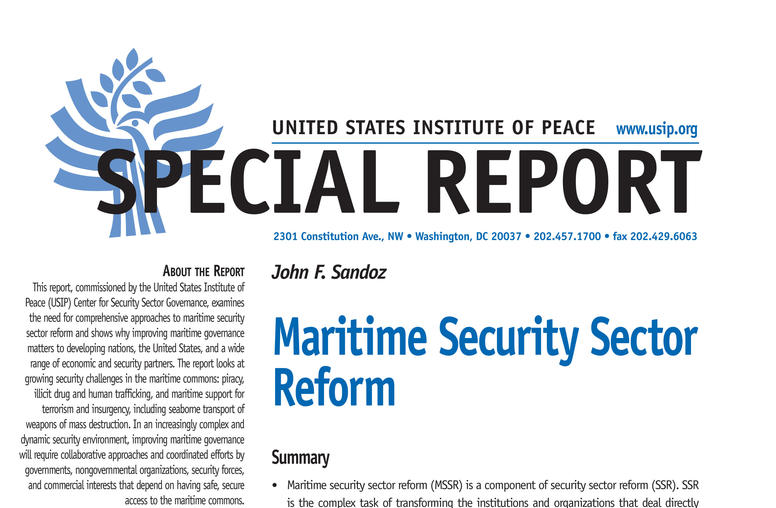
Maritime Security Sector Reform
This report, commissioned by the United States Institute of Peace (USIP) Center for Security Sector Governance, examines the need for comprehensive approaches to maritime security sector reform and shows why improving maritime governance matters to developing nations, the United States, and a wide range of economic and security partners.
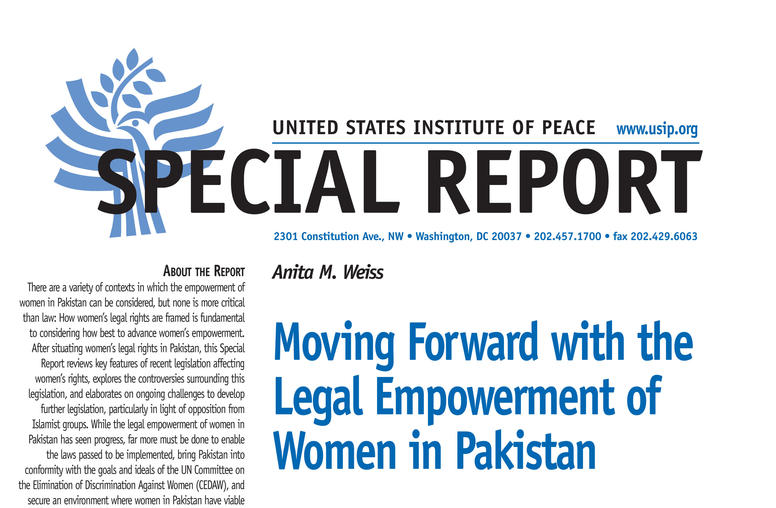
Moving Forward with the Legal Empowerment of Women in Pakistan
There are a variety of contexts in which the empowerment of women in Pakistan can be considered, but none is more critical than law: How women’s legal rights are framed is fundamental to considering how best to advance women’s empowerment. After situating women’s legal rights in Pakistan, this Special Report reviews key features of recent legislation affecting women’s rights, explores the controversies surrounding this legislation, and elaborates on ongoing challenges to develop further legis...
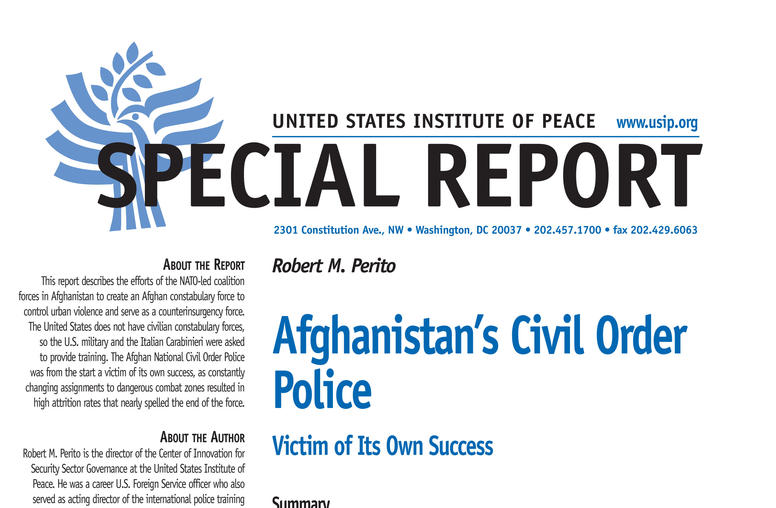
Afghanistan's Civil Order Police
This report describes the efforts of the NATO-led coalition forces in Afghanistan to create an Afghan constabulary force to control urban violence and serve as a counterinsurgency force.
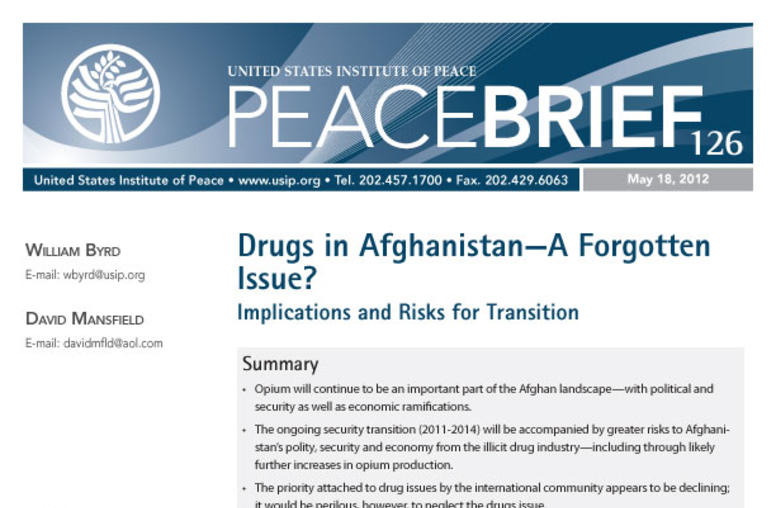
Drugs in Afghanistan—A Forgotten Issue?
This paper reflects both authors' concern that neglect of the opium economy in coming years could be perilous, exacerbate problems, possibly lead to poorly thought-out knee-jerk reactions and/or simplistic responses which would only worsen the situation, and further damage the prospects for success of what will inevitably be a difficult and challenging process of transition in Afghanistan.